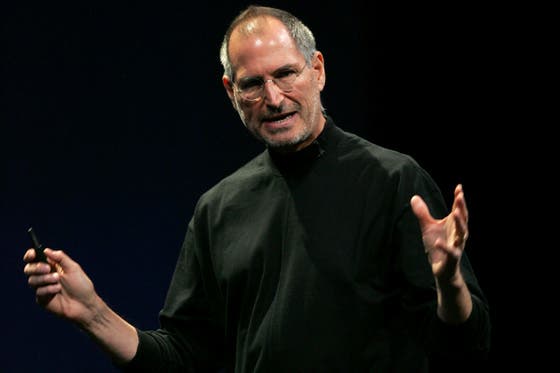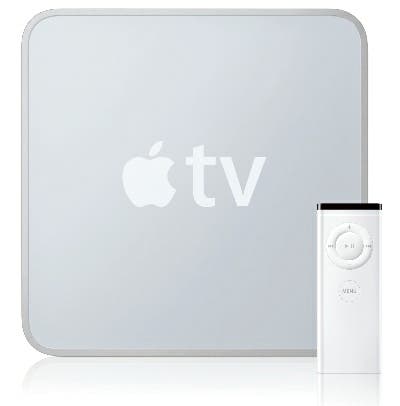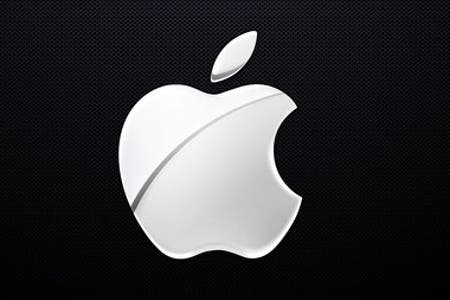Would an Apple TV kill the console business?
Rumours of an iDevice for the living room highlight the huge challenges facing next-gen gaming systems.
Coincidence or not, it was a warning to console makers of things to come. While the old games industry gathered in LA for its annual E3 pissing contest, a loud message was sounding 350 miles to the north.
Apple's Worldwide Developers Conference, which just happened to overlap with the biggest week in the games industry's calendar, also just happened to feature a games-heavy keynote.
Nine months earlier, Steve Jobs had unleashed both barrels against handheld rivals, declaring iPod Touch, with a sneaky fudge, "the number one portable games player in the world", boasting that it "outsells Nintendo and Sony handhelds combined".
Last June, Apple had a different target in its sights. "iOS5 is the most popular games platform on the planet," the company bragged, jubilantly noting that Game Center sign-ups had shot past 50 million in nine months - an impressive figure when put against the 31 million that Microsoft had managed to coax onto Xbox Live in eight years.
This was executive willy-waving of the type Microsoft, Sony and Nintendo had been doing in each others' faces for years through the pantomime medium of E3 conference season. But the new kid had its own stage.
And it foreshadowed, if the ceaseless rumours are to be believed, the next big scrap between Apple and the console makers: the battle for the living room.
Suggestions of a smart TV from Apple have been rife since Steve Jobs' biographer, Walter Isaacson, reported the late leader's revelation: "I finally cracked it".
This "integrated television set" would be "completely easy to use", Jobs said, "seamlessly synced with all of your devices and with iCloud", and have "the simplest user interface you could imagine".
There's not been a single peep out of the company officially since, obviously, on whether an Apple-made TV exists or not, but that hasn't stopped the tech press reporting on it almost daily. The latest twist came with the gossip that Apple was set to acquire Loewe, a posh TV maker in Germany. Loewe moved to rubbish the report, but the rumours rolled on regardless.

For the purposes of this article I'm going to ignore the boring debate over whether Apple definitely is or definitely isn't making a TV - mostly because no-one outside of those directly involved (or not) seems to have a clue - and assume there is no smoke without fire. Because I want to consider what an "iTV" would mean for gaming and how it might threaten the businesses of the companies that make those beloved boxes beneath our current sets.
When it comes to user-friendliness, existing smart TVs are a bewildering mess in dire need of an iRevolution. I have no complaints about the picture quality of my Sonia Bravia 3DTV. Similarly, while the 'smart' interface on it for connected services is about as well-designed as a restaurant website, I can - and do - live without it quite happily, with five separate boxes plugged into it that do that stuff much better anyway.
Nevertheless, the impenetrably over-complicated remote is like a '60s vision of the future made by Blue Peter. And I don't need to see it for real to know how incredible it would be to control a TV with an iPhone and an iPad. And games, too? You betcha. We can of course already glimpse how this would work today by streaming an iPad via Airplay onto a flatscreen using Apple TV.
The pressing concern for Sony, Microsoft and Nintendo, though, is not that an iTV would be able to offer - or even seek to offer - comparable experiences to those possible on dedicated gaming systems. It's that, in the fight for eyeballs and digits, Apple will wade in and take over another established market, fatally limiting the growth potential of the next generation of games boxes at the very moment they are casting out their entertainment nets ever-wider.
"An iPad plus iTV combination is not exactly a million miles away from what Nintendo is pitching with its tablet-based WiiU."
It spells potential trouble for Nintendo because an iPad plus iTV combination is not exactly a million miles away from what the Japanese company is pitching with its tablet-based WiiU. And of all the console manufacturers, Nintendo has struggled most in expanding its entertainment offering online and beyond gaming.
As the reinvigorated, post-Super Mario and Mario Kart 3DS shows, great games can still go a long way, but it's hard to overstate the importance of the firm's E3 conference after last year's botched WiiU reveal. And the sudden emergence of Apple - already going for the throat in handheld - as a living room rival piles on the pressure.
With the mainstream seemingly slowly shifting away from gaming-only devices, Nintendo seems least well-prepared for a skirmish on those terms. But at the same time - and until we know more about WiiU - it seems the least exposed to it of the three console makers.
Sony, like Nintendo, has been hit hard by smartphones in the handheld space, with Vita in desperate need of an E3-assisted second wind. Dire financials across Sony Corp. highlighted the existing fragility of its TV business against the likes of Samsung. And having had its portable music player department clobbered by Apple, it's unlikely to welcome the possibility of an iTV with anything other than dread.
PlayStation 3 has largely trailed Xbox 360 throughout this generation on the connected services it offers beyond gaming. Awkward attempts to spread the XMB across Sony TVs and consoles, meanwhile, would look even less clever alongside a seamlessly integrated iDevice-to-iTV network.
But in its extensive funding of risky indie projects via Santa Monica Studio, and its staunch support for fresh triple-A IP at this stage in the PS3's life, its commitment to core gamers remains undiminished, auguring well for PS4 content and gamers' expectations.
How important is that? Let's look at Microsoft. Superficially, the US company ought to feel most confident of its chances in the next-gen living room. The big news came in March, when it was revealed that more people use Xbox 360 to watch online entertainment than online gaming.
This was the Redmond company's masterplan all along - gaming was only ever a fig leaf to disguise its true ambition to be the entertainment hub of the home. Any lingering doubts over that were put to rest by recent hardcore-unfriendly innovations such as the casual-chasing, never-quite-working-properly Kinect, the ad-soaked, game-demoting Metro dashboard, and the culling of its popular, internally-produced Inside Xbox video content.

A key concern for Microsoft is that it never saw Apple coming. Nor did anyone else. When Xbox 360, PlayStation 3 and Wii launched, there was no such thing as an iPhone and no App Store. Last week Angry Birds passed 1 billion downloads. The gaming world is not what it was - despite the best attempts of next month's increasingly anachronistic, dinosaur's playground at the LA Convention Centre to pretend otherwise.
I've no doubt the next Xbox will have the eye-popping specs to wow the hardcore - even if self-interested Epic doesn't think it does yet - but it's hard to shake the creeping sense of disregard for the loyal gaming audience that made Xbox a success, which risks backfiring as it all too nakedly and greedily chases its entertainment dream.
Piss off your audience enough and they'll just go elsewhere next time. Or, at least, play wait-and-see when early adoption could be so crucial.
The subscription model Microsoft's trialing with 360 may be part of the answer, with the potential to massively reduce day one outlay on the next generation. Either way, these are exciting but uncertain times for the console business as everyone tries to figure out, after decades slavishly following the same cyclical blueprint, what on earth it's supposed to look like in the future.
"When Xbox 360, PlayStation 3 and Wii launched, there was no such thing as an iPhone and no App Store. Last week Angry Birds passed 1 billion downloads."
If anything at all is clear, another £425 machine - PlayStation 3's UK launch price - surely cannot be a successful part of it.
Which bring us back to Apple. A dedicated TV would presumably carry a premium price tag, and people don't update TVs as they do phones or even computers. But it's futile speculating about pricing models for something no-one is certain even exists yet. More relevantly, the merest idea of iTV brings into sharp relief the issues facing the traditional console biz as it prepares for the next generation.
But what of gaming on an Apple television? The problem with all the guesswork surrounding the possibility - including this piece - is that assumptions are based on how Apple might mash-up existing ideas and technologies. There's a very good chance it's got something amazing in the works no-one else has considered.
Either way, an iOS-powered, App Store-fuelled, Siri-and-Facetime-enabled, iPhone-and-iPad-controlled contraption seems a sensible, basic expectation.
For gamers, there's little excitement in the idea of playing Angry Birds on a bigger screen. What is exciting are the new possibilities it would open up for imaginative game designers, with a big screen, streaming all sorts of content, now linked to the small one in our hands.
As with smartphones, it was never a question of one form of gaming replacing another. A beautifully simple touchscreen game can perfectly co-exist with a beautifully complex console game.
It's not an either/or issue for games even if it is for some gamers. No, the question for console makers is: can their next devices perfectly co-exist with each others' - and Apple's?





-3-31-23-screenshot.png?width=291&height=164&fit=crop&quality=80&format=jpg&auto=webp)



